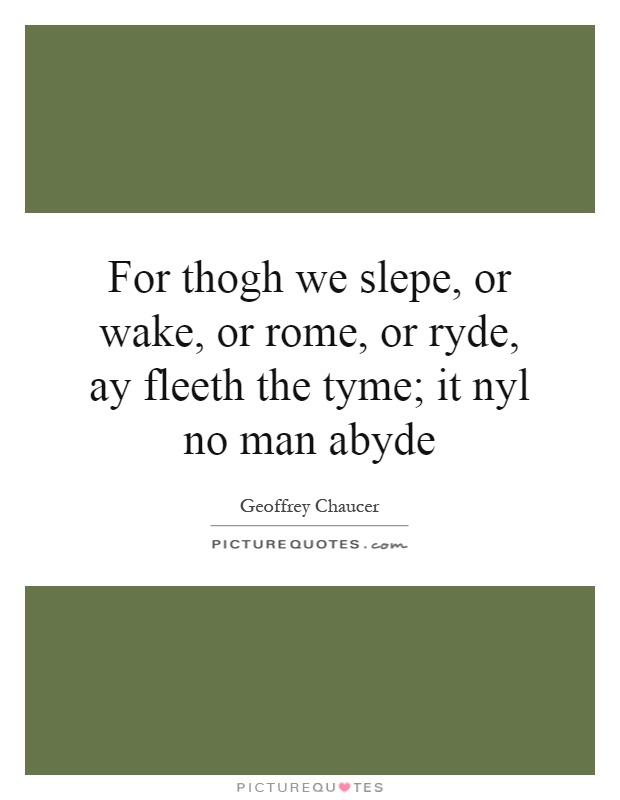For thogh we slepe, or wake, or rome, or ryde, ay fleeth the tyme; it nyl no man abyde

For thogh we slepe, or wake, or rome, or ryde, ay fleeth the tyme; it nyl no man abyde
Geoffrey Chaucer, often referred to as the Father of English literature, was a poet, philosopher, and author who lived in the 14th century. His works, including the famous Canterbury Tales, are known for their keen observations of human nature, social commentary, and intricate storytelling. One of the recurring themes in Chaucer's works is the passage of time and the inevitability of change.The quote “For thogh we slepe, or wake, or rome, or ryde, ay fleeth the tyme; it nyl no man abyde” encapsulates this theme perfectly. Chaucer is reminding us that time waits for no one, no matter what we do or where we go. Whether we are sleeping, awake, traveling, or riding, time continues to pass inexorably forward. It is a universal truth that all humans must face – the fleeting nature of time and the impermanence of life.
Chaucer's use of the word "tyme" in this quote is significant. Time is a central motif in his works, symbolizing the transience of life and the inevitability of death. In the Canterbury Tales, the characters on the pilgrimage to Canterbury are acutely aware of their mortality and the limited time they have on earth. The passage of time is a constant reminder of their own mortality and the need to make the most of the time they have.
Chaucer's quote also speaks to the idea of change and impermanence. No matter how much we try to hold onto the present moment, time slips away from us. The world is constantly in flux, and we must learn to adapt and embrace change. Chaucer's characters in the Canterbury Tales are all on a journey of self-discovery and transformation, reflecting the ever-changing nature of life itself.












 Friendship Quotes
Friendship Quotes Love Quotes
Love Quotes Life Quotes
Life Quotes Funny Quotes
Funny Quotes Motivational Quotes
Motivational Quotes Inspirational Quotes
Inspirational Quotes